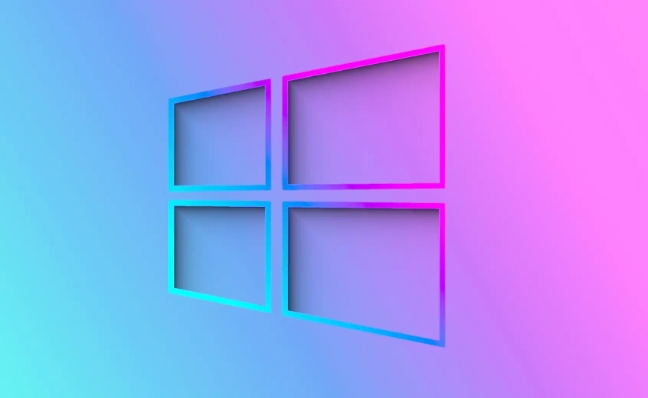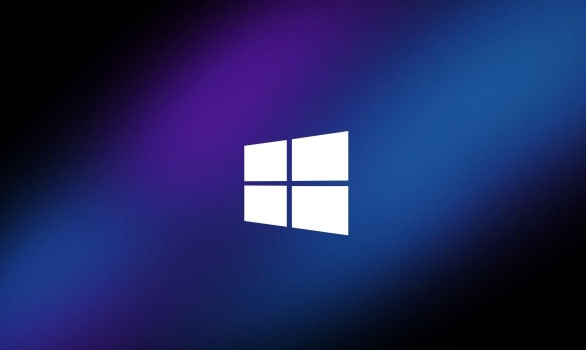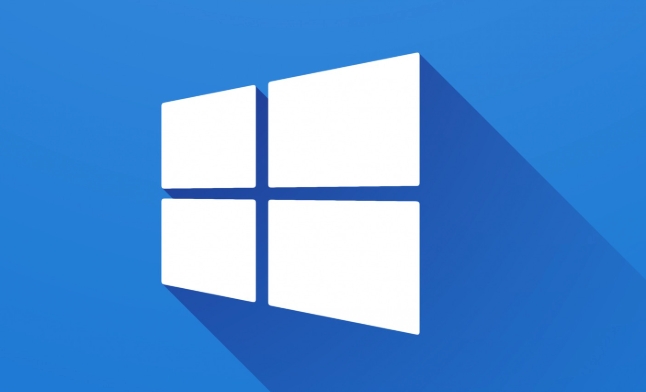To remove the Windows 10 account password, you can directly use the Settings application to operate: Open Settings → Account → Login Options → Change under Password → Enter the current password and leave all fields blank after leaving blank; If you use a Microsoft account, you must first convert to a local account: Settings → Account → Your information → Use a local account to log in → Follow the prompts; Advanced users can use a command prompt: Run CMD as an administrator and enter net user [user name] "" /passwordreq:no. After removing the password, the system will go straight to the desktop, but it may affect the applications and services that rely on credentials and reduce security.

Removing a password from a Windows 10 account is actually pretty straightforward, especially if you're the sole user and don't need that extra layer of security. Just keep in mind—removing your password means anyone with physical access to your machine can log in without any barriers.

Use the Settings App to Remove Your Password
This is the simplest method for most users. Here's how:

- Open Settings (Win I), go to Accounts , then click Sign-in options .
- Under the Password section, click Change .
- You'll be prompted to verify your current password. Enter it, then click Next .
- On the next screen, leave all fields blank and click Next again.
- Confirm by clicking Finish .
If you don't see the "Change" option, it might mean your account is a Microsoft account, and you'll need to convert it to a local account first (more on that below).
Switch to a Local Account (If Using Microsoft Account)
If you're signed in with a Microsoft account (like your email and password used for Outlook or Office), Windows doesn't let you just remove the password directly. Instead, you'll want to switch to a local account:

- Go to Settings > Accounts > Your info
- Click Sign in with a local account instead
- Follow the prompts:
- Enter your current Microsoft account password
- Create a new local username and password (you can leave the password field blank)
- Confirm and finish
After this, you'll be using a local account without a password requirement at login.
Use net user Command in CMD
For more advanced users comfortable with command line tools:
- Open Command Prompt as administrator
- Type:
net user [your_username] "" /passwordreq:no
Replace[your_username]with your actual username - Hit Enter
This sets an empty password and tells Windows not to require one at login.
Make sure you know your exact username. You can check it by typing
whoamiin CMD before running the above command.
What Happens After Remove the Password?
Once the password is gone, your PC will boot straight to the desktop. However, some things may change slightly:
- Apps or services that rely on Windows credentials (like syncing passwords in browsers) might ask for re-authentication.
- Automatic updates or system changes might behave differently since there's no user verification step.
- If you ever want to add a password back, it's easy through the same Sign-in options menu.
And that's basically it. It's not complicated, but definitely something to do only if you understand the trade-offs between convenience and security.
The above is the detailed content of How to remove a password from a Windows 10 account?. For more information, please follow other related articles on the PHP Chinese website!

Hot AI Tools

Undress AI Tool
Undress images for free

Undresser.AI Undress
AI-powered app for creating realistic nude photos

AI Clothes Remover
Online AI tool for removing clothes from photos.

Clothoff.io
AI clothes remover

Video Face Swap
Swap faces in any video effortlessly with our completely free AI face swap tool!

Hot Article

Hot Tools

Notepad++7.3.1
Easy-to-use and free code editor

SublimeText3 Chinese version
Chinese version, very easy to use

Zend Studio 13.0.1
Powerful PHP integrated development environment

Dreamweaver CS6
Visual web development tools

SublimeText3 Mac version
God-level code editing software (SublimeText3)
 How to Change Font Color on Desktop Icons (Windows 11)
Jul 07, 2025 pm 12:07 PM
How to Change Font Color on Desktop Icons (Windows 11)
Jul 07, 2025 pm 12:07 PM
If you're having trouble reading your desktop icons' text or simply want to personalize your desktop look, you may be looking for a way to change the font color on desktop icons in Windows 11. Unfortunately, Windows 11 doesn't offer an easy built-in
 Fixed Windows 11 Google Chrome not opening
Jul 08, 2025 pm 02:36 PM
Fixed Windows 11 Google Chrome not opening
Jul 08, 2025 pm 02:36 PM
Fixed Windows 11 Google Chrome not opening Google Chrome is the most popular browser right now, but even it sometimes requires help to open on Windows. Then follow the on-screen instructions to complete the process. After completing the above steps, launch Google Chrome again to see if it works properly now. 5. Delete Chrome User Profile If you are still having problems, it may be time to delete Chrome User Profile. This will delete all your personal information, so be sure to back up all relevant data. Typically, you delete the Chrome user profile through the browser itself. But given that you can't open it, here's another way: Turn on Windo
 How to fix second monitor not detected in Windows?
Jul 12, 2025 am 02:27 AM
How to fix second monitor not detected in Windows?
Jul 12, 2025 am 02:27 AM
When Windows cannot detect a second monitor, first check whether the physical connection is normal, including power supply, cable plug-in and interface compatibility, and try to replace the cable or adapter; secondly, update or reinstall the graphics card driver through the Device Manager, and roll back the driver version if necessary; then manually click "Detection" in the display settings to identify the monitor to confirm whether it is correctly identified by the system; finally check whether the monitor input source is switched to the corresponding interface, and confirm whether the graphics card output port connected to the cable is correct. Following the above steps to check in turn, most dual-screen recognition problems can usually be solved.
 Fixed the failure to upload files in Windows Google Chrome
Jul 08, 2025 pm 02:33 PM
Fixed the failure to upload files in Windows Google Chrome
Jul 08, 2025 pm 02:33 PM
Have problems uploading files in Google Chrome? This may be annoying, right? Whether you are attaching documents to emails, sharing images on social media, or submitting important files for work or school, a smooth file upload process is crucial. So, it can be frustrating if your file uploads continue to fail in Chrome on Windows PC. If you're not ready to give up your favorite browser, here are some tips for fixes that can't upload files on Windows Google Chrome 1. Start with Universal Repair Before we learn about any advanced troubleshooting tips, it's best to try some of the basic solutions mentioned below. Troubleshooting Internet connection issues: Internet connection
 Want to Build an Everyday Work Desktop? Get a Mini PC Instead
Jul 08, 2025 am 06:03 AM
Want to Build an Everyday Work Desktop? Get a Mini PC Instead
Jul 08, 2025 am 06:03 AM
Mini PCs have undergone
 How to clear the print queue in Windows?
Jul 11, 2025 am 02:19 AM
How to clear the print queue in Windows?
Jul 11, 2025 am 02:19 AM
When encountering the problem of printing task stuck, clearing the print queue and restarting the PrintSpooler service is an effective solution. First, open the "Device and Printer" interface to find the corresponding printer, right-click the task and select "Cancel" to clear a single task, or click "Cancel all documents" to clear the queue at one time; if the queue is inaccessible, press Win R to enter services.msc to open the service list, find "PrintSpooler" and stop it before starting the service. If necessary, you can manually delete the residual files under the C:\Windows\System32\spool\PRINTERS path to completely solve the problem.
 How to show file extensions in Windows 11 File Explorer?
Jul 08, 2025 am 02:40 AM
How to show file extensions in Windows 11 File Explorer?
Jul 08, 2025 am 02:40 AM
To display file extensions in Windows 11 File Explorer, you can follow the following steps: 1. Open any folder; 2. Click the "View" tab in the top menu bar; 3. Click the "Options" button in the upper right corner; 4. Switch to the "View" tab; 5. Uncheck "Hide extensions for known file types"; 6. Click "OK" to save settings. This setting helps identify file types, improve development efficiency, and troubleshoot problems. If you just want to view the extension temporarily, you can right-click the file and select "Rename" and press the Esc key to exit, and the system settings will not be changed.







